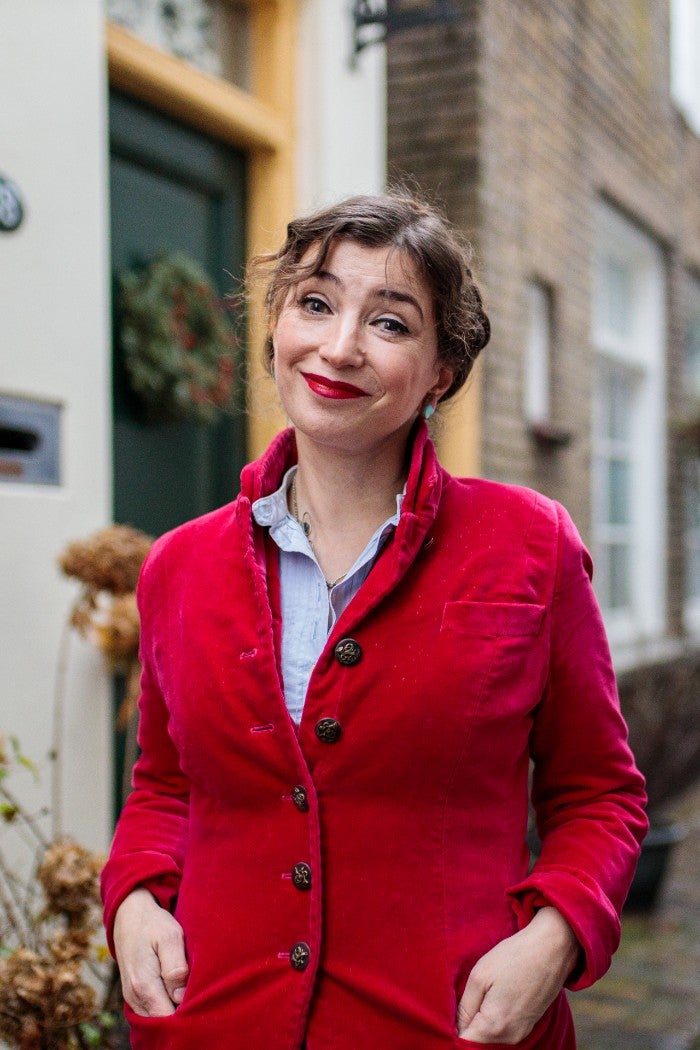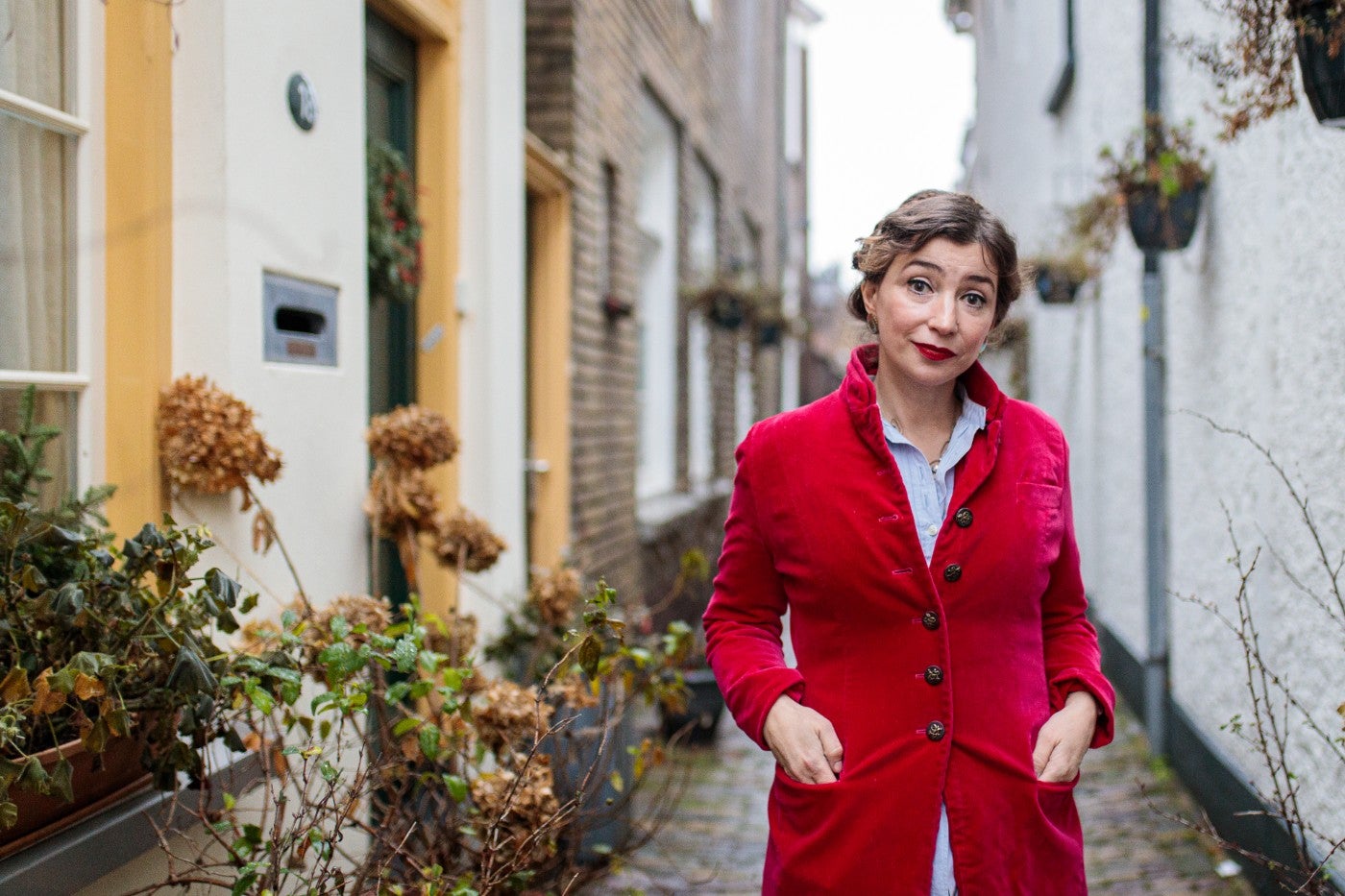Professor Katya Tolstoj (52) delivered her inaugural lecture on Friday 16 December 2022 at VU Amsterdam. Its main message? „The war underscores the dire need for theology and study of religion in our society and academia."
In Kampen, where Tolstoj lives, she is taking care of twenty Ukrainian refugees, mainly women and children. They’re relatives of her husband, who himself has Ukrainian roots. „For me, as for many of my colleagues from the field of post-Soviet studies, Russia’s war in Ukraine means a convergence of the personal and the professional."
„There is a life before and a life after 24 February 2022 (the day that Russia invaded Ukraine, ed.)," the professor continues. „Before that, my research did affect me, but I could still keep my distance. The people, the war: they’re now in my home. It’s no longer about stories in diaries. It’s about individual people with specific histories, with names and faces, that I now carry in my heart."
Your specialism as a professor is theology and religion in societies that have gone through collective and individual trauma. Including ‘extreme dehumanisation’. Does your research feel more topical than ever right now?
„The subject has never nót been topical. Take Russia, for instance: the wounds from the Soviet era have never healed. It started back in 1917 with the Russian Revolution, which was followed by communism and its culture of fear. I studied testimonies from the Gulag (the prisons and labor camps in which millions of people were held. ed.) and the extreme dehumanization that took place there. The legacy of those extreme conditions still persists; it’s reflected in the war that’s going on right now."
What was the basic premise of your research?
„I started with the big question: how can we find answers to the extreme events in the Gulag from a theological perspective? ‘Theology after Auschwitz’ came to mind. That was a theology that helped people in Germany after the Second World War to become aware of what had happened. I wanted to find out what we could learn from it for post-Soviet countries. A war like that involves terribly complicated issues. Imagine your grandfather had been a camp warden during the war. How would that affect you? And how do the horrors of war affect your view of mankind?"
Why is it so important to answer questions like these from a theological perspective?
„Theology enables us to deconstruct ideologies, like the ideology of war that’s holding Russia in its sway right now. At the same time, theology has to be self-critical if it is to say anything credible about humankind. It’s human nature to want to heal, but you can’t rush towards a happy end. Besides, there are always unanswered questions. Like: can you in these extreme circumstances speak of sin when people have no freedom of choice? Or is extreme dehumanization a state beyond our notions of sin?"
Why is extreme dehumanisation such a relevant field of research?
„Extreme dehumanization is a unique condition, but it’s not unique in history. In Auschwitz, people in this condition were called the ‘Muselmänner’. They were people in a state of extreme exhaustion: endless work in harsh conditions, abuse, humiliation, hunger, cold, fear. Auschwitz is one example, but it also comes in other guises: in Apartheid in South Africa and the refugee camps in Syria. What happens to a person in circumstances like that?"
„Extreme dehumanization really goes beyond our imagination. A cameraman in a Nazi camp took footage of what was going on. Even he couldn’t bring himself to look at a Muselmann. As soon as one of these Muselmänner appeared before the camera, he turned away. It was just too awful, too uncomfortable."
In your inaugural lecture, you referred to the notion of Imago Dei (or the 'image of God’, in whose image man was created according to the Bible). How does that image relate to what you found in those testimonies from the Gulag?
„The testimonies made it clear that that image clashes with what people in the camps were like. Here I’m referring to the image of God as defined by Saint Augustine: having a will, a memory and an intellect, but it’s also about the relational aspect, like love for one another. There was no place for that under the most extreme circumstances in in the Gulag and Auschwitz – that in effect is dehumanization."
„Does that then mean that people in the camps were not good people of faith? That they weren’t created in God’s image? That they were sinful? Much has been said about sin. Sin as part and parcel of humankind. But it’s not. Sin is a matter of free choice, and what free choice do you have in situations like that? You become a Muselmann; you don’t have a choice."

What does it mean for faith if that image of God has disappeared?
„There’s always something that’s greater than us; I see that in all testimonies. Something that transcends humankind. It’s more than a psychological or psychosomatic condition. I found a description of the sound of a running stream in one of the testimonies. The person describing it indicated that he found life again through that sound."
„That’s more than just an experience in your brain or than memory. It’s that, too, without doubt. That’s why the medical sciences can measure it. But it’s more than that. It’s similar to the feeling I have when I’m with my dog, Gena. That God is in everything without coinciding with the world."
„I hope that more research will be done on this subject. The 21st century has to be the century in which all relevant sciences come together, especially in the field of anthropology. Theology is indispensable in this respect. Because it has much to say about the human nature. And also since – down the line – Russia and Ukraine will be facing issues like guilt and reconciliation."
Finally, you have recently been nominated as the Theologian of the Nation. Do you have specific goals that you are hoping to achieve in that role?
„I’m trying to bring nuance to the shallow discourses of our time. We have become so accustomed – even as scientists – to presenting an elevator pitch, and because of that we’re oversimplifying things. These days you have to reduce your thoughts to something so simple that you’re left with nothing. That doesn’t work in a world that is so complex. If I manage to convince someone that it’s not that simple, I’ll be happy. It’s not a matter of intellect; it’s a matter of attitude. Even the most ordinary man or woman can make the effort to take a more nuanced view of things. I hope that, by the questions I ask, I can incite that way of looking at things in people."






